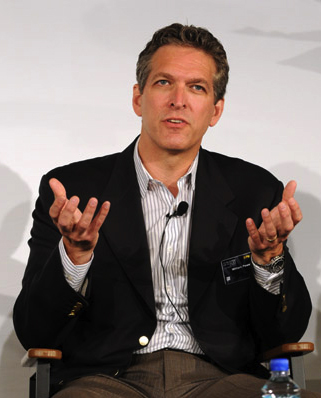If there’s any place where trustworthy information is scarce it’s in politics. Everyone knows how candidates change their own stories while distorting those of their opponents. In an election race, it’s standard operating procedure to view the facts as endlessly malleable.
But what about the public’s story, as relayed to us by the media? One day we’re told that candidate X is gaining momentum in a certain state or among a certain demographic, while candidate Y is fading. Then a week passes and the roles have reversed. Do millions of people really change their minds that quickly, en masse? Or are there ways in which the information economy requires these fluctuations for the sake of the narrative drama, and provides them?
Some blame this phenomenon on the traditional media with its fixation on the horse-race aspects of politics, and claim the solution has arrived: digital tools. I’ve read more than once that the 2012 election will be decided by social media, though how exactly that will happen isn’t specified.
Setting the new media against the old is just another kind of horse race. In fact, the two have different strengths and are complementary. Right now new media are filling in the gaps in the old, particularly when it comes to the public’s story.
Has there ever been a greater public megaphone than today’s social networks? And what’s interesting is that when people use that megaphone, as millions do on Twitter and Facebook each day, they tend to do so in response to what they see in an older medium. The narrative of this presidential campaign is unfolding mostly on television, as it has for decades. What’s new is that people are talking back to their televisions via social media. To the extent we understand this dynamic and factor it into our understanding of the public conversation, we’ll make the whole process more coherent and trustworthy.
At Bluefin Labs, we’ll soon launch a new stream of election analysis that aims to do exactly that. We’re going to track the social-media conversation about presidential politics in the context of the televised narrative that frames it. We hope you’ll follow us and give us feedback.
